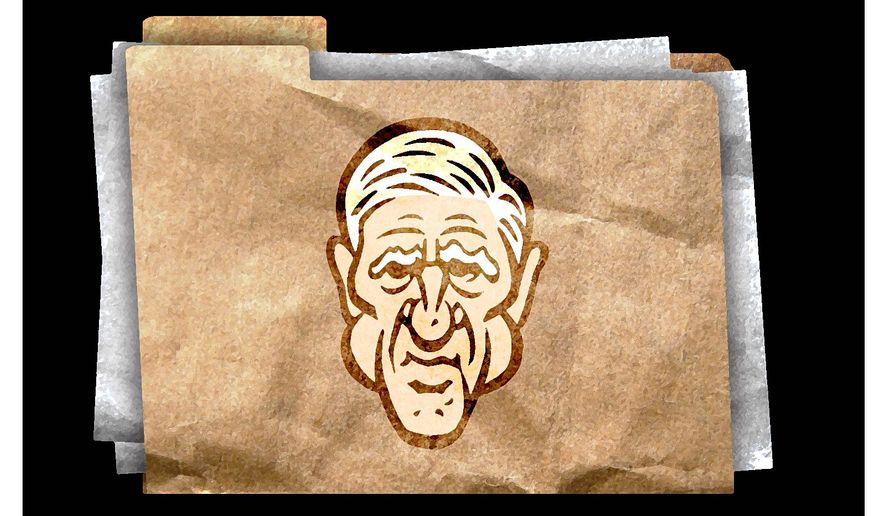OPINION:
Donald Trump says Robert Mueller’s investigation is a witch hunt, and many others have now reached the same conclusion. The Russia connection seems tenuous and the provenance — a deep state FBI hostile to Donald Trump’s presidency — is sketchy.
Today the administration, which is to say the administration of the government of the United States of America, is hobbled by the possible findings of a special counsel who, after more than a year of searching has found, so far as we know, nothing that would disqualify Mr. Trump from being president.
It’s true that if there were illegal campaign activities or even, perhaps, if there were legal but unseemly (whatever that might mean, and unseemly to whom?) activities connecting the campaign to the Russians, the American people should know about them.
But at what cost should that knowledge be obtained? Any cost? Should Mr. Mueller’s investigation continue for 10 years? Eight years? Four years? At some point shouldn’t the American people be left to judge Mr. Trump on his performance as president, not as candidate?
We have an election coming up and a country to govern. We need some assurance that the “Russia” investigation is proper and still necessary.
Mr. Trump could demand that Mr. Mueller, who technically works for the president, brief him and the American people on the status of the investigation. But that would probably produce a firestorm, albeit only from the usual no-credibility suspects. Even so, a firestorm going into a congressional election is something to be avoided.
But something needs to be done. The mere continuing presence of the investigation is likely to influence the congressional elections in November, even as it hampers the administration day after day. It’s a reasonably good bet that President Trump will fire Mr. Mueller the day after the November elections no matter which party takes the House of Representatives — wouldn’t you? — and he should prepare for that action now.
There are two issues here: The people are entitled to know the propriety and the status of the investigation; and the responsibility of continuing an investigation with the import of the Mueller investigation should not be left to one person. That is more power than any one individual, except perhaps the president, should have.
What to do? President Trump should appoint a committee of three to investigate the provenance and scope of the special counsel’s mandate and his progress.
The committee members can determine whether the provenance of the investigation was proper (or was it just a setup by the deep state FBI?) as well as if it should be allowed to continue, that is, if there is credible evidence of “any links and/or coordination between the Russian government and individuals associated with the Trump campaign” — the language is taken from Deputy Attorney General Rod Rosenstein’s letter appointing Mr. Mueller.
If the committee determines that the provenance was proper and that the investigation should continue, they can so inform the president and the American people. If they determine otherwise, they can so state — and at that point Mr. Trump could ask Mr. Mueller to resign.
Who should be on the committee? People like James L. Buckley, former senator, under secretary of State and Circuit Court judge. And Judge Laurence H. Silberman. And former Sen. Joe Lieberman. (Not, alas, former FBI head Judge William H. Webster: he’s too close to the FBI.) People like Messrs. Buckley, Silberman and Lieberman are statesmen. They have standing. Gravitas. They can be trusted. And it would be difficult for the liberal-progressive anti-Trump media complex or denizens of the deep state — or anyone else — to second guess them.
Would Mr. Trump appoint such a committee? There’s a risk for him, but only if there is in fact “credible evidence” of a Russia connection. Mr. Trump should know, although it’s possible, if any connection was only with lower-level munchkins, that he does not — but then why would we care?
How long would it take the committee to do its work? Two weeks: three days for each member to find one person to work with as staff; three days for Mr. Mueller to make his case (if he can’t make it in three days he doesn’t have a case;) three days for the committee and staff to review all the evidence; three days to write a report; two days for unexpected events. Easy.
That may sound fast for Washington, but it’s how Mr. Trump gets things done.
If there is no credible evidence of any improper links or coordination, Mr. Trump can end the investigation and get on with presidential business. If there is reason to continue the investigation, the American people should know it, and know that the administration’s cry of “witch hunt” is, at best, ignorant, at worst, smoke screen.
Either way, the American people are entitled to that knowledge. It’s their country, after all, and Mr. Mueller really works for them.
• Daniel Oliver is chairman of the board of the Education and Research Institute and a director of Pacific Research Institute for Public Policy in San Francisco.




Please read our comment policy before commenting.